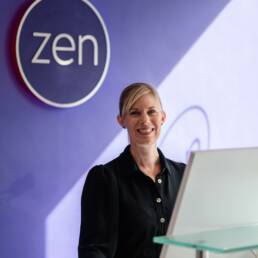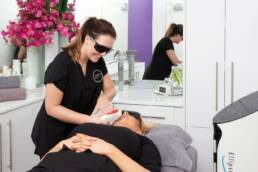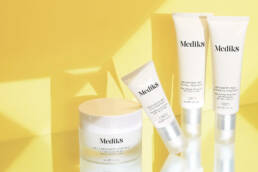We all know chronic stress isn’t good for us but how does it affect our skin? Apart from contributing to acne, eczema and psoriasis, stress can lead to premature ageing of the skin by several mechanisms.
NUTRIENT DEPLETION
VITAMIN C: Is one of the most important nutrients when it comes to collagen, it is a cofactor for the 2 enzymes needed for collagen production so we without, we can’t make collagen.
Humans are no longer able to synthesise their own vitamin C like other mammals can so it’s essential we get it through our diet. When we’re stressed our adrenal glands release cortisol, a stress hormone, and along with this, they also secrete vitamin C. Our adrenals love vitamin C and usually contain high concentrations of it but in times of chronic stress we can become depleted.
MAGNESIUM: Is involved in many of the body’s functions and is an electrolyte mineral which helps regulate fluid balance. Low magnesium levels can lead to dehydrated cells causing the skin to lose its elasticity and plumpness. Magnesium is also needed to regulate fatty acids in the body which help to keep skin hydrated and supple. Stress has been shown to reduce magnesium levels in the body.
ZINC: Is a cofactor in the production of collagen and helps to protect it from damage. It is also anti-inflammatory and strengthens and repairs the skin. Zinc isn’t stored well in the body and when we are stressed our digestion shuts down so as well as not storing zinc, we’re not able to absorb it either.
PANTOTHENIC ACID: Is also known as Vitamin B5 and is vital for energy production. When stress levels increase so does the need for pantothenic acid. It is converted to acetyl CoA and needed in high quantities by the adrenal glands as the energy requirements to produce adrenal hormones, such as cortisol, are so high. Pantothenic acid has hydrating and moisturising qualities and helps to repair damaged skin tissue.
DEHYDRATION
During times of chronic stress the adrenal glands will produce a lot of cortisol and over time they can become exhausted and hormone production drops. The adrenal glands also produce aldosterone which helps regulate the water and salt balance in the body. Reduced aldosterone which levels can result in dehydration due to an imbalance of the electrolyte minerals sodium and potassium. Dehydrated skin lacks plumpness, loses elasticity and may age faster.
ADVANCED GLYCATION END PRODUCTS
When cortisol is produced in times of stress, our liver releases stored glucose (sugar) to use for quick energy. Normally, insulin is released to signal to our cells to uptake the glucose but when there is cortisol present, our cells become resistant to insulin so the glucose stays in our blood stream. High levels of blood sugar can lead to glycation of the skin. This is where a sugar attaches to collagen and elastin fibres and forms advanced glycation end products (AGEs). This causes the skin to lose its suppleness and flexibility leading to skin ageing.
Stress can be physical, mental or environmental and our body doesn’t know the difference. It can come from pollution, artificial lighting, blue light, non-native electromagnetic fields or even mould so its important to not only focus on your mental stress by practicing yoga, mindfulness and meditation but also being more conscious of your environment. Avoiding overhead lighting at night, trying to reduce time looking at screens and spending more time in nature are some simple steps you can take to help reduce stress to your body.
Zen recommends: Skinade collagen drink, Medik8 C-Tetra Lipid Vitamin C Radiance Serum, Medik8 Hydr8 B5 Intense Hyaluronic Acid and Medik8 Clarity Peptides 10% Niacinamide-infused Peptide Serum. All available in salon. Skinade 30-90day available for delivery with free p&p.

By Susan, Zen Receptionist
Susan is part of our Front of House team, she has a wealth of beauty industry experience as a qualified Beauty Therapist. Susan splits her time with Zen and is also a Nutritional Therapist, owning her own business. She can be on hand to give advice on skin, skincare and lifestyle choices.




